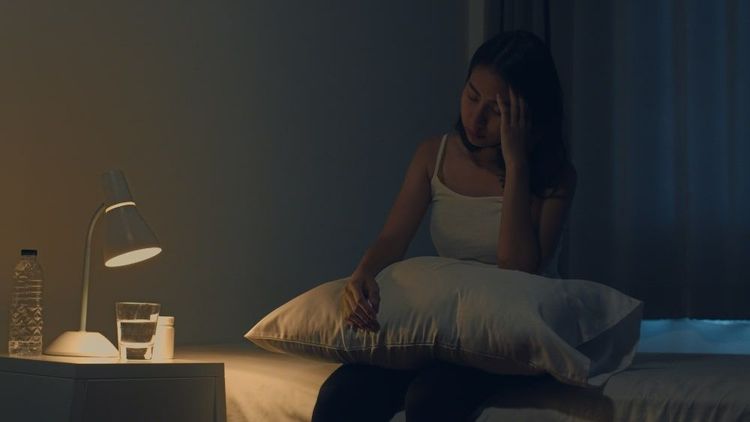Have you ever woken up tired, even after eight hours in bed? You probably blamed stress, work, or maybe your phone. But for many, the real issue hides in the silence of the night—sleep apnea.
Sleep apnea isn’t just loud snoring or gasping for air. It’s a nightly interruption that steals the deep rest your brain needs. Every time your breathing stops, your body jolts awake, even if you don’t notice. Those tiny interruptions add up, turning peaceful sleep into a battle for oxygen.
The result? A tired brain struggling to stay balanced. It’s like trying to drive on an empty tank. You can move, but not smoothly. Over time, those restless nights reshape how you think, feel, and respond to life.
Let’s explore 5 ways sleep apnea impacts your mood and emotions, and how this condition quietly alters your mental well-being.
Mood Swings and Irritability
The Emotional Whiplash of Poor Sleep
When sleep becomes fragmented, so does your patience. Sleep apnea repeatedly disrupts deep sleep cycles, leaving your mind half-rested and agitated. One moment you feel fine, the next you’re snapping at someone for leaving a light on. Sound familiar?
These mood swings don’t appear overnight. They creep in slowly, day after day. Lack of quality sleep messes with your brain chemistry. It boosts stress hormones like cortisol and reduces serotonin—the same chemical that keeps you calm. The balance breaks, and emotions turn unpredictable.
Ever notice how even small annoyances feel unbearable when you’re exhausted? That’s your brain struggling to regulate emotions on low power. It’s not you being difficult—it’s fatigue taking the driver’s seat.
The Ripple Effect at Work and Home
Irritability doesn’t stay behind closed doors. It leaks into every conversation, meeting, and relationship. You start overreacting to small mistakes or misreading neutral comments as criticism. Loved ones might say, “You’re not yourself lately.”
This emotional turbulence often strains relationships. At work, it can lead to tension with colleagues. At home, it can cause friction with family. People with untreated sleep apnea often find themselves apologizing more than laughing.
Rested minds can pause before reacting. Sleep-deprived ones rarely can. That’s why treating sleep apnea isn’t just about fixing snoring—it’s about saving your peace of mind.
Increased Anxiety and Stress
The Hidden Link Between Oxygen and Anxiety
Anxiety loves a tired brain. Sleep apnea keeps your nervous system on edge by repeatedly cutting off your oxygen supply. Each breathing pause sends a silent alarm through your body, even if you never wake fully.
Your heart races. Your body floods with adrenaline. It’s a built-in survival response, meant for danger—not bedtime. Over time, your system forgets how to relax. You start the day already stressed, even before your first coffee.
This constant state of alertness feeds anxiety. You may find yourself worrying over minor things, struggling to unwind, or feeling uneasy without reason. Your body’s been training for stress all night.
How Exhaustion Feeds the Stress Cycle
The problem doesn’t end in the morning. Lack of restful sleep affects how you process challenges. Simple problems feel heavier. Daily tasks seem endless. It’s like walking through mental fog with no clear direction.
Chronic fatigue also weakens coping skills. You might lose patience easily, or feel nervous in situations that never used to bother you. When the mind is tired, everything feels like too much.
Breaking this pattern starts with better sleep. Once your body starts getting enough oxygen at night, the nervous system relaxes. Anxiety doesn’t vanish overnight, but calm starts returning piece by piece.
Impaired Cognitive Function
When Focus Starts to Fade
Sleep is brain maintenance time. During deep rest, the brain clears toxins and strengthens memory connections. With sleep apnea, that process keeps getting interrupted. The result? Brain fog.
You forget names, lose your keys, or reread the same line twice. It’s not old age or distraction—it’s exhaustion disguised as forgetfulness. The brain can’t perform at full speed when its nightly repair cycle keeps getting cut short.
People with sleep apnea often describe feeling “mentally fuzzy.” Concentration dips, reaction time slows, and simple tasks take longer. It’s like trying to write an essay with half the words missing.
The Real-World Consequences
Cognitive fatigue doesn’t just hurt productivity—it changes confidence. You start doubting yourself, second-guessing decisions, or hesitating in conversations. That constant self-doubt adds emotional strain.
At work, it can affect performance. Mistakes increase. Projects drag on. Students with sleep apnea might struggle to absorb lessons or recall facts. For parents, even following a conversation with their kids becomes tiring.
Fortunately, cognitive clarity often returns once treatment begins. Many people describe it as “getting their brain back.” The difference is night and day—literally.
Depression and Emotional Well-Being
When Sleep Deprivation Feeds Sadness
Depression and sleep apnea share a silent partnership. When sleep is poor, the brain’s chemistry tilts toward sadness. Serotonin and dopamine—chemicals that lift mood—drop. Fatigue takes over, and hope feels distant.
At first, it’s subtle. You feel a little off, maybe less enthusiastic. Then motivation fades. You stop enjoying things that once made you happy. Over time, those dips deepen into depression.
What’s tricky is that many people blame their low mood on stress, not realizing sleep apnea is part of the picture. Studies consistently link untreated sleep apnea with higher rates of depression. The connection isn’t coincidence—it’s chemical.
Finding Light Again
The good news? The emotional fog often lifts once sleep improves. As oxygen levels stabilize, mood-regulating hormones rebalance. Many patients report feeling “lighter,” even before noticing other physical improvements.
Treatments like CPAP therapy can make a remarkable difference. Better sleep leads to more energy, clearer thinking, and renewed optimism. Life starts feeling manageable again.
It’s also worth mentioning that depression itself worsens sleep habits. The less you sleep, the sadder you feel, and the harder it becomes to rest. Breaking that loop begins with proper diagnosis and consistent care.
Social Withdrawal and Relationship Strain
When Exhaustion Turns Into Distance
Sleep apnea doesn’t only affect the person who has it. It affects partners, friends, and family too. Loud snoring, restlessness, and irritability can drive couples apart—literally. Some partners end up sleeping in separate rooms.
Beyond the bedroom, social energy plummets. You start skipping events, canceling plans, or staying quiet in group settings. It’s not that you’ve lost interest in people—you’re just too drained to engage.
Over time, isolation creeps in. Friends may stop inviting you, thinking you’re not interested. Relationships cool off. What begins as tiredness can slowly turn into loneliness.
Rebuilding Emotional Connection
Restored sleep often restores connection. When you wake refreshed, patience and humor return. Small annoyances no longer spark arguments. Conversations flow more naturally.
Many couples notice their bond strengthening once one partner starts treatment. It’s not just about snoring—it’s about emotional closeness. When rest improves, empathy returns. You listen better, laugh more, and reconnect with people you love.
Even outside romantic relationships, energy changes everything. When you’re not running on fumes, social life becomes enjoyable again. You start saying yes to dinner plans and rediscovering the joy of company.
Conclusion
Sleep apnea is more than a nighttime disturbance—it’s a silent mood thief. It affects how you think, feel, and relate to others. From constant irritability to deep sadness, the emotional consequences can shape every part of life.
But here’s the hope: it’s treatable. Once you restore healthy sleep, emotions begin to heal. Anxiety calms. Focus sharpens. Joy returns. Treating sleep apnea isn’t just about breathing easier—it’s about living brighter.
If you’ve been feeling short-tempered, anxious, or mentally foggy, don’t shrug it off. Ask yourself: Am I truly sleeping, or just lying down?
Get tested. Seek help. A full night’s sleep can change everything—from your mornings to your mindset.
Your emotional balance deserves that chance.




